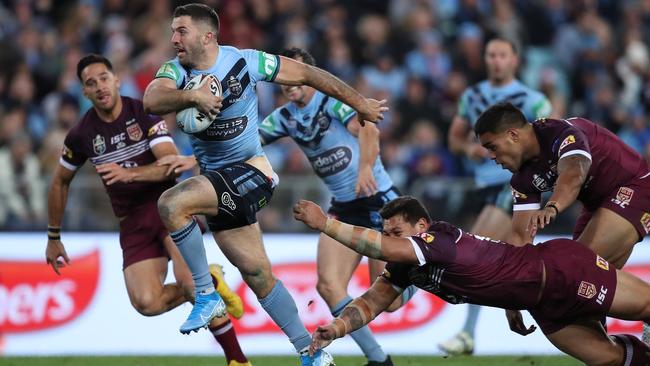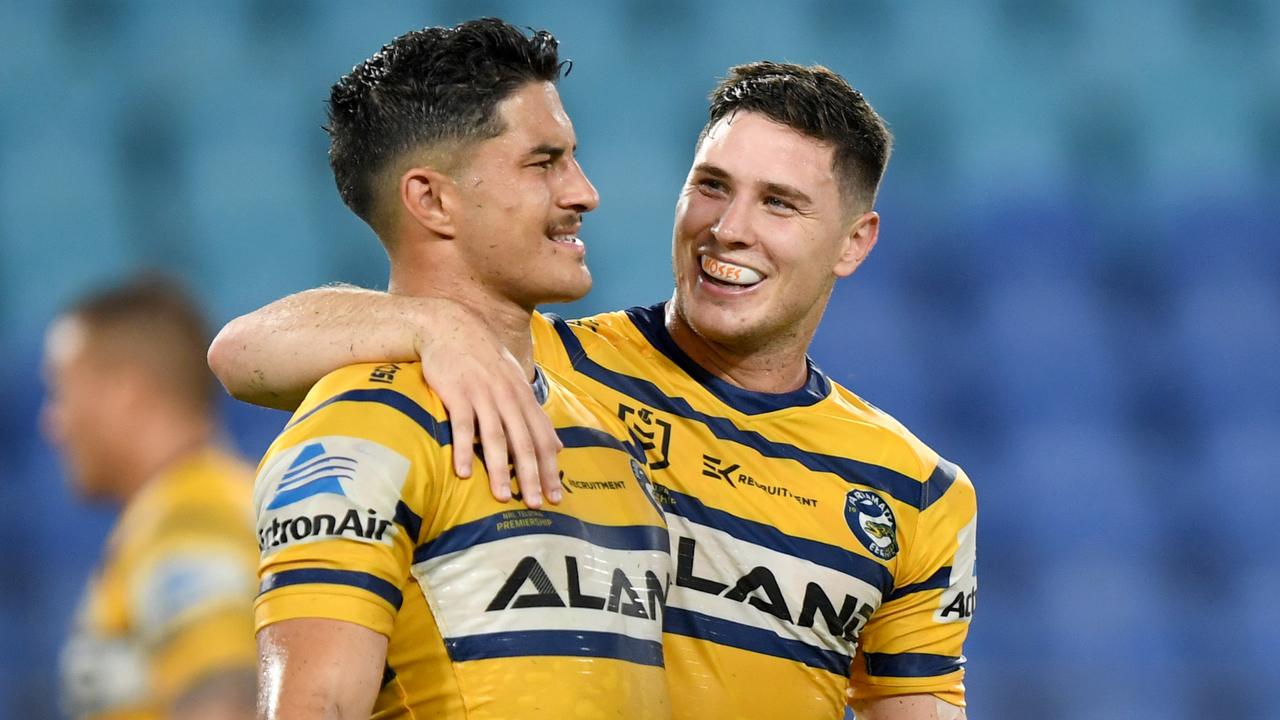
Surely, the madness has to end. Sadly, it won’t for some time yet. So day after day, week after week, we can expect all manner of proposals to be put forward to the NRL and subsequently road-tested through the media.
State of Origin to kick things off once the NRL pushes the go-button on a return to rugby league. Three grand finals at the end. Rugby league threatens to enter bizarro world.
Neither appears likely, although they are being pushed hard by some parties. Let’s start with Origin, the biggest and boldest product in rugby league’s armoury. There are clear problems with starting the season with Origin, the largest being that the players would take part in the game’s prized jewel with rust as their companion.
By the time the season starts — July 1 appears the most realistic date, although the NRL and ARL Commission are pushing hard for early June — the players may have gone three and possibly four months without having played a game.
A tough pre-season is no substitute for match fitness. The standard of Origin would take a hit if the players were asked to return to the biggest stage with no mileage in their legs.
The other consideration for the NRL is the likelihood that when the game does return, it will do so behind closed doors.
Origin is a cash cow for the code. It generates millions — much of it through broadcasting rights but also corporate and crowd support.
If the gates are locked and the suites are closed, the NRL would be forced to forgo large sums of money. This at a time when rugby league is like every other sport — struggling to make ends meet and secure their survival.
Their preference is therefore to bide their time and hope that the gates are thrown open in August or September.
If they push the season back far enough, maybe Origin could be played in October. The other option would be to play the series at the end of the regular season, by which time there is every chance crowds will be allowed to flood through the gates yet again.
That would cause the NRL headaches in terms of ground usage — the SCG and Adelaide Oval are among the venues being used for the T20 cricket World Cup in October and November.
Yet there would be no shortage of suitors for Origin. It remains one of the most coveted sporting products on the box. So why the rush?
As for the idea of multiple grand finals, a plan pushed by promoter Dean Lonergan, the concept threatens to lose momentum almost as quickly as it gathered steam.
There are legitimate concerns over the idea from both the NRL and the broadcasters.
At a time when the game needs to generate goodwill, extending the grand final series would have the effect of polarising rugby league fans.
Many would no doubt recoil at the prospect of being forced to pay extra to watch a grand final on pay television — under Lonergan’s plan, the first game would be on commercial television before the remaining two were potentially shown on Main Event.
There would be a backlash, although Lonergan points out that if you want to see the game, you could wander down to your local drinking hole or watch the game with a friend.
There would no doubt also be fans howling if their team won the first game in a grand final series and then lost the next two. Again, Lonergan insists that both teams have equal opportunity. He says if you were to ask players whether they would embrace the chance to play three grand finals, they would jump at the opportunity.
When Anthony Mundine fought Danny Green for the first time, 200,000 people paid for the event. An NRL grand final, he insists, would do at least that and more. For every negative, there are far more positives in Lonergan’s world.
The NRL is tiptoeing a path fraught with peril at the moment. Rugby league fans are desperate to see the game back, even if it means they are restricted to imbibing from the comfort of their living rooms.
At the same time, the game needs to ensure it doesn’t alienate supporters by eating away at the credibility of the product.
NRL chief executive Todd Greenberg likes to say there are no bad ideas in the current environment. He may be right.
Lateral thinking is needed, given the world we currently live in. Some ideas, though, are clearly more difficult to sell than others.



